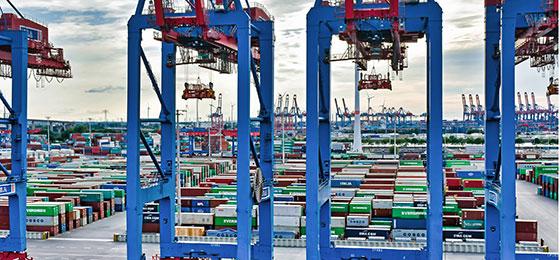Is Switzerland ready for change?

Climate change, biodiversity loss, deforestation and the current pandemic crisis make it obvious. The need for a more sustainable world has never been as urgent as it is today. But how do we transition to a sustainable economy? The National Research Programme "Sustainable Economy: resource-friendly, future-oriented, innovative" (NRP 73) is creating knowledge that can support Switzerland in addressing this question. It has now published its first report, on the state of research at the midway point.
The transition towards a sustainable economy will affect the welfare of both present and future generations. It can be achieved given the right political framework conditions, including economic incentives, new business models, innovative sustainable finance and changes in lifestyles.
There are still some knowledge gaps in our understanding of the costs and benefits, as well as the rebound effects, of securing a fair and sustainable transition. To that end, NRP 73 is providing tools and recommendations that can support policy makers, the private sector and society.
Highlights of the research findings
Given its strong financial sector,Switzerland can playa significant role in stimulating the replacement of existing production systems with cleaner ones. To increase trust in sustainable finance, the government can set adequate signals to attract sustainable investments. Another innovation proposed by NRP 73 is the Swiss Social Stock Exchange (SwiSOX), on which financial instruments geared towards a sustainable economy could be traded.
To achieve carbon neutrality by 2050, an increase of circularity and material efficiency is needed. For example, the recycling rate for insulation materials could be increased from 10 per cent to over 60 per cent with improved deconstruction practices and contaminant removal. Another option is the substitution of extracted raw materials with construction and demolition waste in cement production.
However, Switzerland’s footprint cannot be reduced without lifestyle changes by each one of us. Consumer behaviour is a key factor in achieving a more sustainable economy. Environmental policies can occasionally be ineffective or have unintended effects. Encouragingly, preliminary results indicate that spill-over effects in environmentally friendly behaviour do not have a negative impact. Interventions to reduce household electricity usage or hot water consumption, for example, have proven to be effective without undesired side effects on the use of other resources.
In terms of import to GDP ratio, the Swiss economy is globally one of the most highly dependent economies. Various attempts by Swiss private and public actors towards more sustainable supply chains differ substantially across industries and at different state levels – federal, cantonal, municipal. Improving the sustainability of Swiss supply chains requires recognising different data needs, setting new standards and testing innovative approaches as well as tackling potentially conflicting legal constraints. Furthermore, for chocolate companies, for example, transparency among value chain actors is a key factor in improving sustainability.
Incremental changes in our business processes and marginal efficiency gains in production systems are not enough to reach today’s sustainability goals. Companies are encouraged to redesign their business models following a circularity approach. In this context, cooperation with other companies facilitates solutions that far exceed the options open to individual enterprises. As circularity does not necessarily mean more sustainability, environmental and socio-economic impacts must be considered carefully. In addition, there are still major hurdles in the implementation of a sustainable circular economy, including regulatory barriers and potential rebound effects. In order to get companies to behave more sustainably and to tap into circularity potentials, government interventions need to be carefully designed and smartly implemented.
Better use of scientific knowledge with stakeholder involvement
In the lead-up to the programme’s synthesis report, more results will be generated. Specific co-creation labs will offer the opportunity to create new knowledge together with researchers and practitioners, thereby facilitating the transition towards a sustainable economy.
Contacts
The National Research Programme "Sustainable Economy: resource-friendly, future-oriented, innovative" (NRP 73)
Funded by the Swiss National Science Foundation (SNSF), the NRP 73 aims to generate scientific knowledge about a sustainable economy that uses natural resources sparingly, creates welfare and increases the competitiveness of the Swiss economy.
NRP 73 takes account of the environment, the economy and society as well as natural resources and stages of the value chain. The programme, consisting of 29 research projects, lasts from 2017 until 2023 with a total budget of CHF 20 million Swiss Francs.
Overview of the state of research in NRP 73
The published report provides an overview of the state of research in NRP 73 at the midway point. The structure of the report allows each chapter to be read independently. All statements made in this report are based on the research findings provided by the research projects. A list of relevant publications is included.